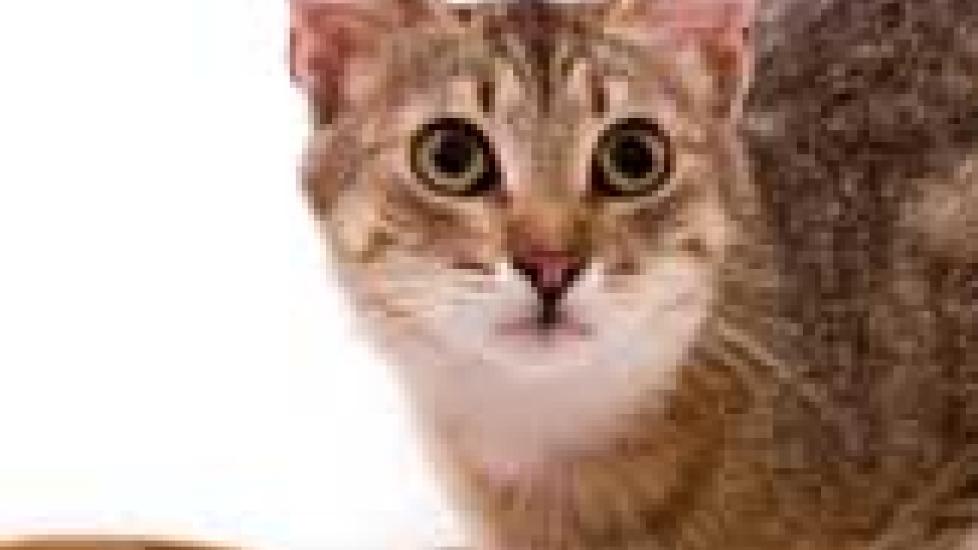The Importance of Digestibility for Cats
Today I’m going to talk about an important pet food characteristic — digestibility. In fact, I think it is so important that I’m going to address it on both the canine and feline Nutrition Nuggets pages on the same day. The information in the two posts is similar but not identical, so if you’re interested in the well-being of dogs and cats, take a look at them both.
Merriam-Webster defines "digestibility” as "the percentage of a foodstuff taken into the digestive tract that is absorbed into the body." An easy way to wrap your mind around this is to employ a little bit of arithmetic (I apologize to any mathophobes out there).
Let’s say a cat eats 50 grams of food per day and produces 4 grams of poop per day. This means that she’s absorbing 46 grams of the food into her body.
46 grams/50 grams x 100% = 92%
Therefore, we can say that the food in this example is 92% digestible. In other words, the cat absorbed 92% of what was included in the food and got rid of 8% as waste. (We’re ignoring water for the sake of simplicity, which is fine for our purposes as long as we don’t try to compare a dry and a canned food.
Let’s take this one step further. What about the digestibility of individual nutrient categories? Take protein for example. If a cat were to eat 20 grams of protein and excrete 1 gram in her feces, the proteins in the diet were 95% digestible.
(20 grams - 1 grams = 19, 19/20 x 100 = 95%)
You might be thinking, "So what?" So … let’s look at two hypothetical cat foods:
- Cat Food A contains 30 percent crude protein (according to its guaranteed analysis), and the protein is 95% digestible
- Cat Food B contains 30 percent crude protein (according to its guaranteed analysis), and the protein is 85% digestible
If a cat eats 50 grams of each food, then:
- Food A: 50 grams of food x 0.3 x 0.95 = 14.25 grams of protein is absorbed
- Food B: 50 grams of food x 0.3 x 0.85 = 12.75 grams of protein is absorbed
You can see that even though the two labels say that each food contains 30% protein, Food A actually provides more usable protein than Food B. Digestibility matters.
Unfortunately, digestibility does not have to be reported on cat food labels, but there are ways for owners to determine, at least in part, whether or not a particular diet is highly digestible.
- Examine your cat’s stools. If she produces large amounts of feces, her current diet may not be all that digestible. This is particularly true if the stool is soft or contains a lot of mucus.
- Look at the ingredient list. In general, high quality ingredients are more digestible than those of low quality. The top of the list should be dominated by ingredients that sound like something you might find in your kitchen.
- What’s the cost? While it’s true that manufacturers can slap a high price on a low quality food, the opposite does not hold. Highly-digestible, quality ingredients do cost more, so don’t be tempted by deals that appear too good to be true — because they probably are.
If you’ve read both the canine and feline versions of this post, you may have noticed the numbers that I’ve chosen to use for the protein and digestibility percentages in my calculations are higher for cats in comparison to dogs. This was done purposefully. Unlike dogs, cats are obligate carnivores, which means that they require relatively more protein, and that digestibility is especially important for them. That said, even the best cat food should not be 100% digestible (mice aren’t 100% digestible, after all). Including some fiber (e.g., in the form of whole grains) is a perfectly reasonably way to mimic the role that a mouse’s fur or the seeds that it just ate have as they pass through a cat’s digestive tract.
The petMD MyBowl tool is a good source of information about which cat food ingredients are highly digestible and which should be avoided. Take a look if you haven’t already.

Dr. Jennifer Coates
Image: Forewer / via Shutterstock
